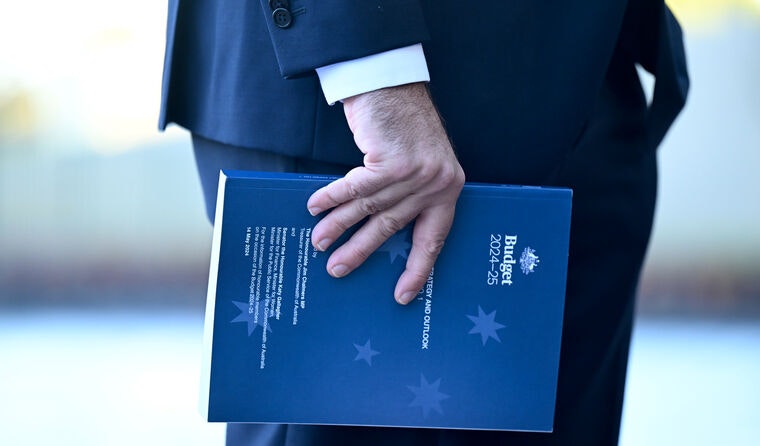Federal Budget 2024-25 Overview
In the wake of the 2024/25 Federal Budget announcement, we explore some of the announcements set to impact Australian businesses.
Reducing the individual tax rates
The Budget has confirmed that previously announced Stage 3 Tax Cuts will come into effect from July 1 2024. These tax cuts seek to soften the cost of living by reducing tax rates and adjusting the income brackets.
With a reduction in tax liability, individuals’ loan serviceability will likely increase (depending on each person's unique situation), giving borrowers an extra edge when it comes to certain types of finance assessments.
Instant asset write-off extension
The $20,000 instant asset write-off for small businesses will be extended until June 30, 2025. Small businesses with a turnover of less than $10 million will be able to claim an immediate tax deduction for eligible assets. The assets must cost less than $20,000 and be first used or installed between July 1, 2023 and June 30, 2025.
Many small businesses have strategically used this initiative as part of their tax planning strategy, using equipment finance to purchase the asset, write it off immediately, and then claim the interest on the equipment loan as a tax deduction. It’s important to seek the appropriate professional advice if you’re considering using any tax planning strategies.
Please note that the instant asset write-off extension is part of the Treasury Laws Amendment Bill 2023 and is still before Parliament, yet to become law.
eInvoicing support
$23.3 million has been designated to increase the adoption of eInvoicing systems. This initiative aims to significantly improve cash flow management for small businesses, offering a more efficient invoicing process. The increased use of eInvoicing is expected to combat payment redirection scams more effectively, providing a more secure transaction environment. By adopting these advanced invoicing methods, small businesses will also experience a boost in productivity, as the automation and digitisation of invoicing processes reduce manual errors and save valuable time.
If you’re interested in ways to improve cash flow further, have a look at invoice finance. With invoice finance, businesses can access 85% of the value of outstanding customer invoices, rather than waiting to receive payment.
Industry Growth Program
A substantial $392.4 million has been allocated to the Industry Growth Program. This funding is designed to support start-ups and SMEs in innovating, commercialising their ideas, and achieving growth. This advisory service is specifically for businesses within the priority areas of the National Reconstruction Fund (NRF), helping to increase manufacturing capability here in Australia.
Supporting mental health and financial well-being of small business owners
An additional $10.8 million will enhance the mental health and financial well-being of small business owners. This funding will extend the NewAccess for Small Business Owners program, which provides mental health support, and the Small Business Debt Helpline, offering assistance with financial challenges. These initiatives aim to ensure that small business owners have access to the necessary resources and support to manage both their mental health and financial stability.
Employee SG to be paid with each payday
The Federal Budget has confirmed the implementation of payday superannuation starting on July 1, 2026. Under this new policy, employers will be required to pay the Superannuation Guarantee (SG) to their employees concurrently with their salaries and wages, instead of on a quarterly basis. Although this change was announced on May 2, 2023, it has not yet been enacted into law. However, its inclusion in the budget cements the Government's intention to proceed with this measure.
Response to tax debt
The Budget announced a change to the law that will allow the Commissioner of Taxation to use their discretion when deciding to use a taxpayer's refund to pay off old tax debts. This is for debts that were put "on hold" before January 1, 2017. This measure is designed to provide relief to low-income taxpayers struggling with tax debt.
If you’re interested in exploring ways to manage business tax debt, take a look at how our finance solutions are helping business owners.
If you'd like to discuss any of the finance concepts mentioned in this article, please get in touch with Earlypay today.
DISCLAIMER: This article is for general informational purposes only. It is not financial advice. You should consult an accountant or tax professional on the tax treatment of any asset used in a business.
